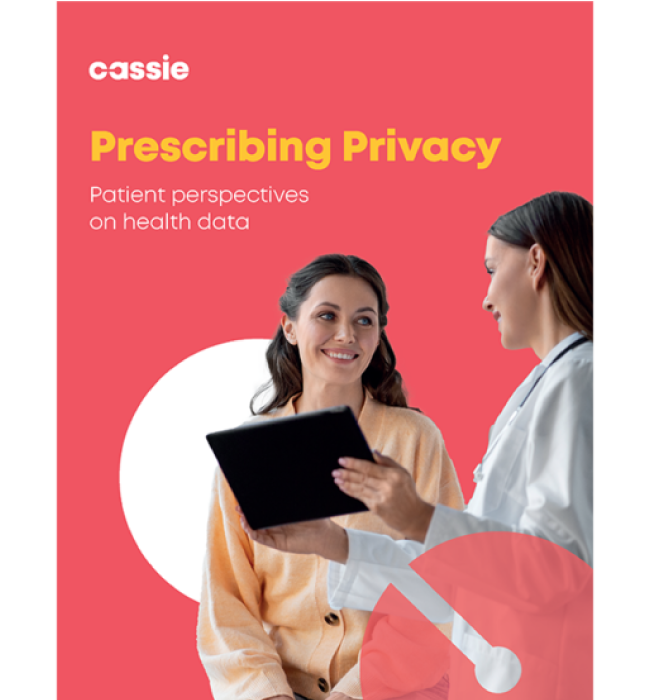Navigating data consent in the era of connected healthcare
Posted: November 21, 2023
The Internet of Medical Things (IoMT) technologies have transformed what is possible in healthcare. Tech has resulted in better patient outcomes due to faster diagnoses and personalized therapies.
Inevitably though, this tech collects more sensitive data than ever before.
We explore how companies and health authorities can manage the data privacy complexities of connected healthcare to build patient trust and ensure transparency.
Digital technologies such as telemedicine and wearables are contributing to the development of a connected healthcare network that will improve patient outcomes and reduce healthcare costs. The adoption of IoMT technologies has enabled professionals to monitor patients remotely, collect and analyze health data, and provide personalized treatments.
According to a GlobalData thematic report, Internet of Things in Healthcare, the market for IoMT platforms for healthcare providers is projected to reach $13.3bn in 2025, with a compound annual growth rate (CAGR) of 4.6% from 2020. The report also forecasts that healthcare providers will spend $13.3bn on IoT platforms in 2025, up from $10.3bn in 2019, at a CAGR of 4.6%.
Interoperability is a critical component of this integrated healthcare ecosystem since it allows different healthcare systems and devices to exchange and use patient data seamlessly. At the same time, the rapid adoption of data-driven technologies, along with the public’s growing concern about personal data, raises significant questions about data privacy. In healthcare, data privacy, security and data governance must be established from the very beginning.
How health data can drive connected healthcare
Real-time patient data and analytics help healthcare professionals to better understand individual conditions and provide appropriate interventions. They also promote greater coordination and communication among healthcare providers participating in a patient’s care, lowering the likelihood of medical errors.
Connected healthcare solutions encourage patient engagement by allowing people to access their health information and track their progress or treatments. Health data plays an important role in the viability of these digital solutions. By building open and collaborative relationships with patients, healthcare providers can address patient concerns about data privacy. Then patients can actively consent to the sharing of their medical information.
Our recent survey indicated that 87% of respondents are keen to provide their personal data to receive better standards of care.
Consent is a fundamental principle in healthcare ethics. Patients have the right to determine how their personal health information is used and shared. Obtaining informed consent ensures that patients are aware of how their data will be used and allows them to make informed healthcare decisions.
However, the Cassie survey also revealed a lack of awareness among patients about their rights to personal data and the security mechanisms in place to secure their sensitive data.
More than half (53%) of the 803 participants were unclear of their rights to consent and control over their health data. Meanwhile, 69% were unaware of the security procedures in place to protect sensitive data shared with healthcare providers.
Building transparency to foster trust
In such a scenario, there is an increasing onus on healthcare companies to address the public’s privacy and data security concerns as they move forward with their connected health or digital transformation.
A successful data management strategy requires tracking, storing, and analyzing vast amounts of patient information while enforcing appropriate security procedures and regulatory compliance. The healthcare sector can strengthen connected systems by collaborating with a reliable consent and preference management platform (CMP).
With lack of informed consent emerging as a major concern among patients, a customizable CMP such as Cassie can help healthcare providers adopt more patient-centric data practices. The robust Cassie platform protects patient privacy while securing important health data by streamlining the consent-gathering process, as well as maintaining compliance when managing complicated, high-volume data.
Companies can have access to a single source of truth by connecting consents across an organization, as well as third-party platforms and channels. Additionally, Cassie provides a complete audit trail of all access permissions and changes, making it easy to track, manage, and securely communicate a patient’s preferences and consent, enabling relevant, personalized communications.

Download ‘Prescribing Privacy’ research report
In a new research report, Cassie spoke directly to US consumers in order to delve into the heart of consumer trust and confidence in the healthcare system’s ability to protect and uphold data, as well as attitudes toward their own understanding of healthcare data privacy.
Download now to understand consumer perceptions of healthcare providers’ commitment to safeguarding data privacy, how data breaches in the news impact their feelings, how they evaluate a healthcare provider for data security, and actions healthcare organizations can take to fortify trust while navigating data privacy.

